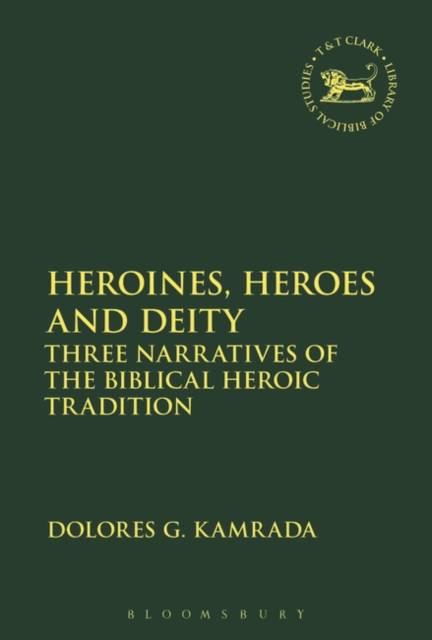
Bedankt voor het vertrouwen het afgelopen jaar! Om jou te bedanken bieden we GRATIS verzending (in België) aan op alles gedurende de hele maand januari.
- Afhalen na 1 uur in een winkel met voorraad
- In januari gratis thuislevering in België
- Ruim aanbod met 7 miljoen producten
Bedankt voor het vertrouwen het afgelopen jaar! Om jou te bedanken bieden we GRATIS verzending (in België) aan op alles gedurende de hele maand januari.
- Afhalen na 1 uur in een winkel met voorraad
- In januari gratis thuislevering in België
- Ruim aanbod met 7 miljoen producten
Zoeken
€ 79,95
+ 159 punten
Uitvoering
Omschrijving
Kamrada's study analyses three narratives concerning the greatest heroic figures of the biblical tradition: Jephthah's daughter, Samson and Saul, and includes a consideration of texts about King David. All three characters are portrayed as the greatest and most typical and exemplary heroes of the heroic era. All three heroes have an exceptionally close relationship with the deity all die a traditionally heroic, tragic death. Kamrada argues that within the Book of Judges and the biblical heroic tradition, Jephthah's daughter and Samson represent the pinnacle of female and male heroism respectively, and that they achieve super-human status by offering their lives to the deity, thus entering the sphere of holiness.
Saul's trajectory, by contrast, exemplifies downfall of a great hero in his final, irreversible separation from God, and it also signals the decline of the heroic era. David, however, is shown as an astute hero who founds a lasting dynasty, thus conclusively bringing the heroic era in the Deuteronomistic history to a close.
Saul's trajectory, by contrast, exemplifies downfall of a great hero in his final, irreversible separation from God, and it also signals the decline of the heroic era. David, however, is shown as an astute hero who founds a lasting dynasty, thus conclusively bringing the heroic era in the Deuteronomistic history to a close.
Specificaties
Betrokkenen
- Auteur(s):
- Uitgeverij:
Inhoud
- Aantal bladzijden:
- 232
- Taal:
- Engels
- Reeks:
Eigenschappen
- Productcode (EAN):
- 9780567686602
- Verschijningsdatum:
- 7/02/2019
- Uitvoering:
- Paperback
- Formaat:
- Trade paperback (VS)
- Afmetingen:
- 156 mm x 234 mm
- Gewicht:
- 331 g

Alleen bij Standaard Boekhandel
+ 159 punten op je klantenkaart van Standaard Boekhandel
Beoordelingen
We publiceren alleen reviews die voldoen aan de voorwaarden voor reviews. Bekijk onze voorwaarden voor reviews.









